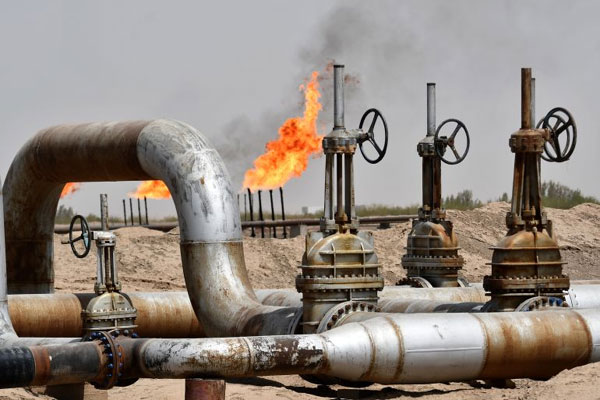Daijiworld Media Network - Baghdad
Baghdad, Sep 27: Iraq has officially resumed crude oil exports from its semi-autonomous Kurdistan region via the Iraq-Turkey pipeline, marking the end of a two-and-a-half-year suspension that had strained federal-Kurdish relations and impacted national revenues.
The Oil Ministry confirmed that exports restarted at 6 a.m. local time on Saturday with full efficiency, lauding the move as a breakthrough in coordinated resource management between Baghdad and the Kurdistan Regional Government (KRG). The ministry called the development a “significant step” in strengthening national unity and ensuring export sustainability, a critical factor for Iraq, where oil sales account for over 90% of state revenue.

This resumption follows a deal announced Thursday by Prime Minister Mohammed Shia' al-Sudani, under which the federal government will take control of crude produced in the Kurdistan region and export it through Turkey — a shift from the KRG’s earlier practice of independent oil sales via Ceyhan without Baghdad’s consent.
The pipeline had been offline since March 2023, after an international arbitration ruling sided with Iraq in its legal dispute with Turkey over unsanctioned Kurdish exports. The restart is expected to bolster Iraq’s economic recovery and restore a key revenue stream.
But beyond oil, Iraq is also laying the groundwork for a post-fossil fuel future. At a high-level event on Saturday, Prime Minister al-Sudani unveiled Iraq Vision 2050, a sweeping national strategy to diversify the economy, enhance private sector engagement, and boost self-sufficiency in food, water, and energy through sustainable development.
“Iraq cannot continue to rely solely on fossil fuels as the cornerstone of its economy,” al-Sudani said at the launch, which was attended by government officials, diplomats, business leaders, and civil society members.
Key pillars of Vision 2050 include:
• Establishing Iraq as a regional transit hub for 20% of Asia-Europe trade through the Al-Faw Grand Port and Development Road project, projected to generate 1.5 million jobs
• Achieving 70% self-sufficiency in food, water, and energy through green initiatives
• Empowering youth, academia, and civil society in shaping a resilient and diversified economy
• Preparing a development roadmap for submission to the Council of Ministers
Al-Sudani emphasized that artificial intelligence and global technological shifts are redefining economic paradigms, and Iraq must evolve accordingly.
“Iraq Vision 2050 represents a unifying national orientation,” he said, framing the plan as a long-term partnership across public and private sectors to liberate Iraq from oil dependency and align with global economic transformation.
With oil flowing once again and an eye toward a diversified future, Iraq appears to be navigating a delicate balance between resource management and structural reform, setting a new course for the decades ahead.